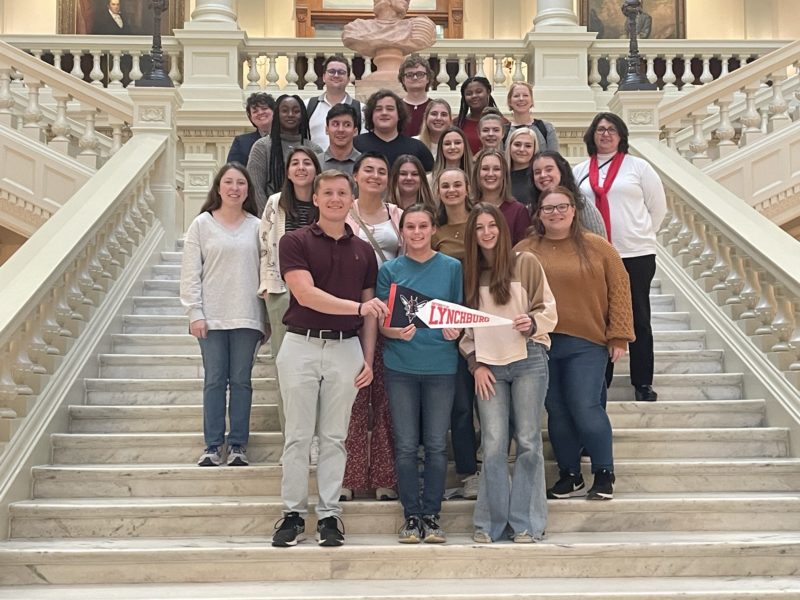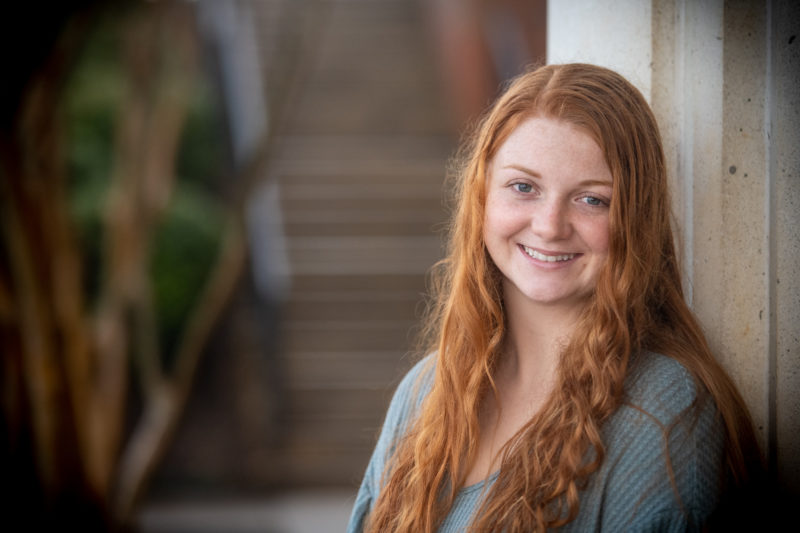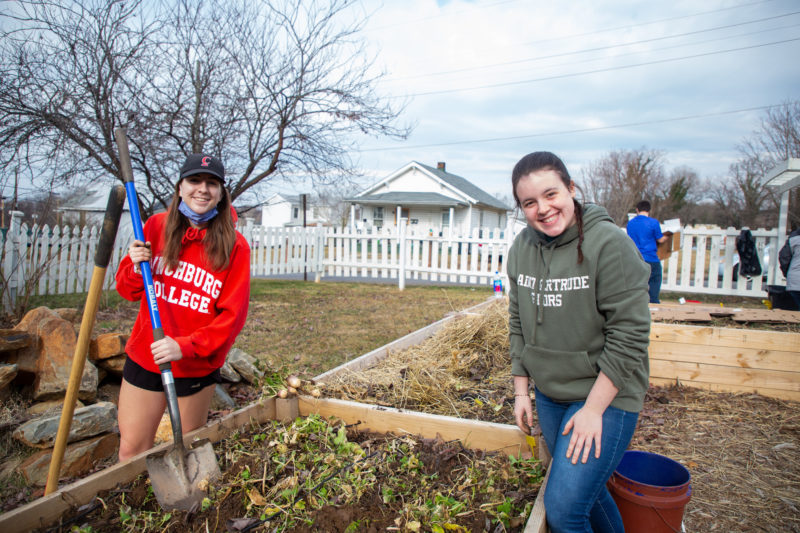The University of Lynchburg recently secured a three-year Enrichment Grant from the Bonner Foundation that will provide $40,000 annually.
“The foundation reached out to us as one of three Bonner Leader Program campuses to invite us to apply for this grant,” said Director of the Center for Community Engagement Cindy Ferguson, who has been in this role since April 2019.
“We were targeted because of the work [we’ve done] transitioning the Bonner Program [from a two-year program] to a four-year program and the expansion of the program’s work, as well as the campuswide initiatives we’re involved in to impact the greater Lynchburg area.”
That community outreach includes volunteerism, fundraising, service learning, long- and short-term projects, and community-based research. President Dr. Alison Morrison-Shetlar’s Lynchburg Tomorrow initiative and its many projects with community organizations are part of the work.

Specifically, the grant money will help fund Bonner programming, faculty workshops, and two planned faculty fellows — one for the Center for Community Engagement and one for the Bonner Leader Program in particular. It will also provide grants for students to help with service projects, as well as a senior fund that helps pay for graduate school testing, plus travel and clothing for job interviews.
Most significantly, perhaps, the money will help fund stipends for the 19 community partners who mentor and train Bonner Leaders during what’s essentially a 3 ½-year internship, said Tasha Gillum, the coordinator for the Bonner Leader Program since August 2019.
“It really does require that the Bonner community partner, or the site supervisor, is invested in developing that student,” she said.
It’s a big commitment for the partners, but the payoff is usually worth it.
“By their third and fourth year, they have a really awesome student who knows the organization well and is taking on some leadership roles within the organization,” Gillum added.
Last year, Bonner Leader and Westover Honors Fellow Leigh-Anne McCormick ’22, an exercise physiology major who is now enrolled in the DPT program, volunteered at Brook Hill Farm. Her senior research project, “Understanding the Effects of Therapeutic Horseback Riding on Functional and Behavioral Outcome in Autistic Children and Adolescents,” combined her academic interests with service and future career goals.

McCormick is an example of the Bonner Developmental Model aligning perfectly — a student who takes what they’ve learned in the classroom and on campus into the community “to identify something that ideally is a need, or of interest to the community partner, and ties in to integrate into the academic learning or focus for a student,” Gillum said.
“That is the hope — that students can bring their skill set of what they’re gaining in that classroom and then really apply that to their experience with their site.”
At the moment, there are 28 Bonner Leaders. The goal is to have 40 Bonner Leaders, and Ferguson and Gillum are working with admissions and advancement to identify more scholarship opportunities that will attract more students, particularly first-generation students and students from diverse backgrounds.
In addition to service work that will help build their résumés and may even lead to a job, Bonners have the opportunity to attend several conferences each year. When they’ve successfully completed their program, they receive a $5,000 scholarship that can be used for student loans or graduate school, thanks to an endowment provided by the Schewel Bonner Fund.

The Bonner Foundation grant money will allow Ferguson and Gillum to use the Bonner Leader Program as a model for the rest of campus — to make the kinds of experiences Bonners participate in available to every student on campus, regardless of major. Cory Schutter, who was recently hired as the community engagement coordinator, will help with that effort.
“The goal is not for the impacts just to be confined within Bonner, but to actually then start figuring out, how do we take some of what Bonners have started, and are doing, and how do we make that accessible to the entire campus community,” Gillum explained.
That vision has been a part of the Bonner Program since Ferguson was hired, and it was reinforced by Morrison-Shetlar, who considers herself a servant leader, when she took over the presidency in 2020.
“It really was about expanding the work that we do in the community — and making greater impacts with collaborative efforts in the community, with our nonprofit partners, government agencies, and philanthropic organizations,” Ferguson said.
CVCC reached out to Ferguson last year to develop a partnership where students in the University’s accounting program help local community college students with their taxes — a great potential learning opportunity for accounting students and a win-win for everyone.
“No matter what your program of study is, there are ways to impact the community,” Ferguson said.

